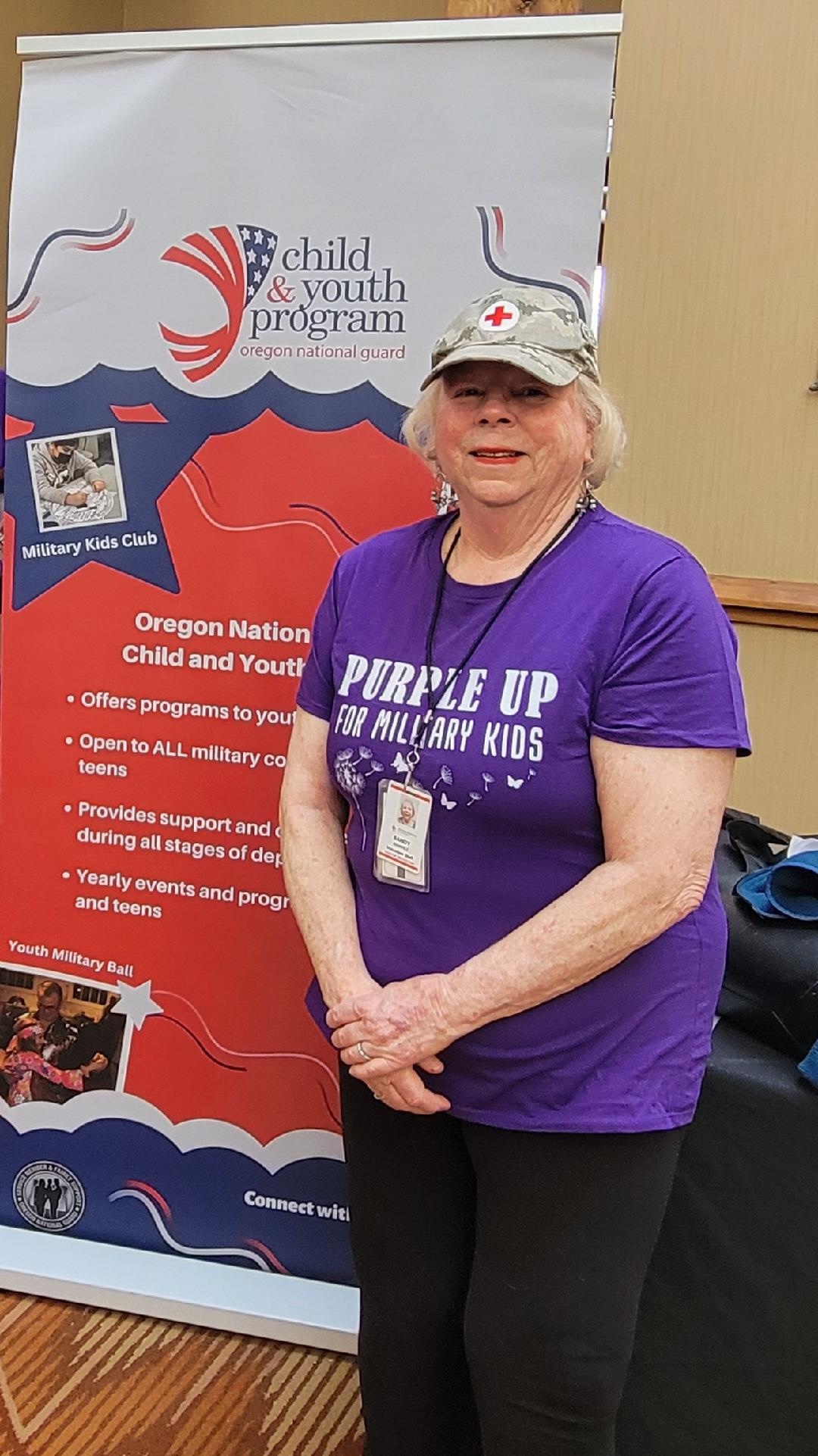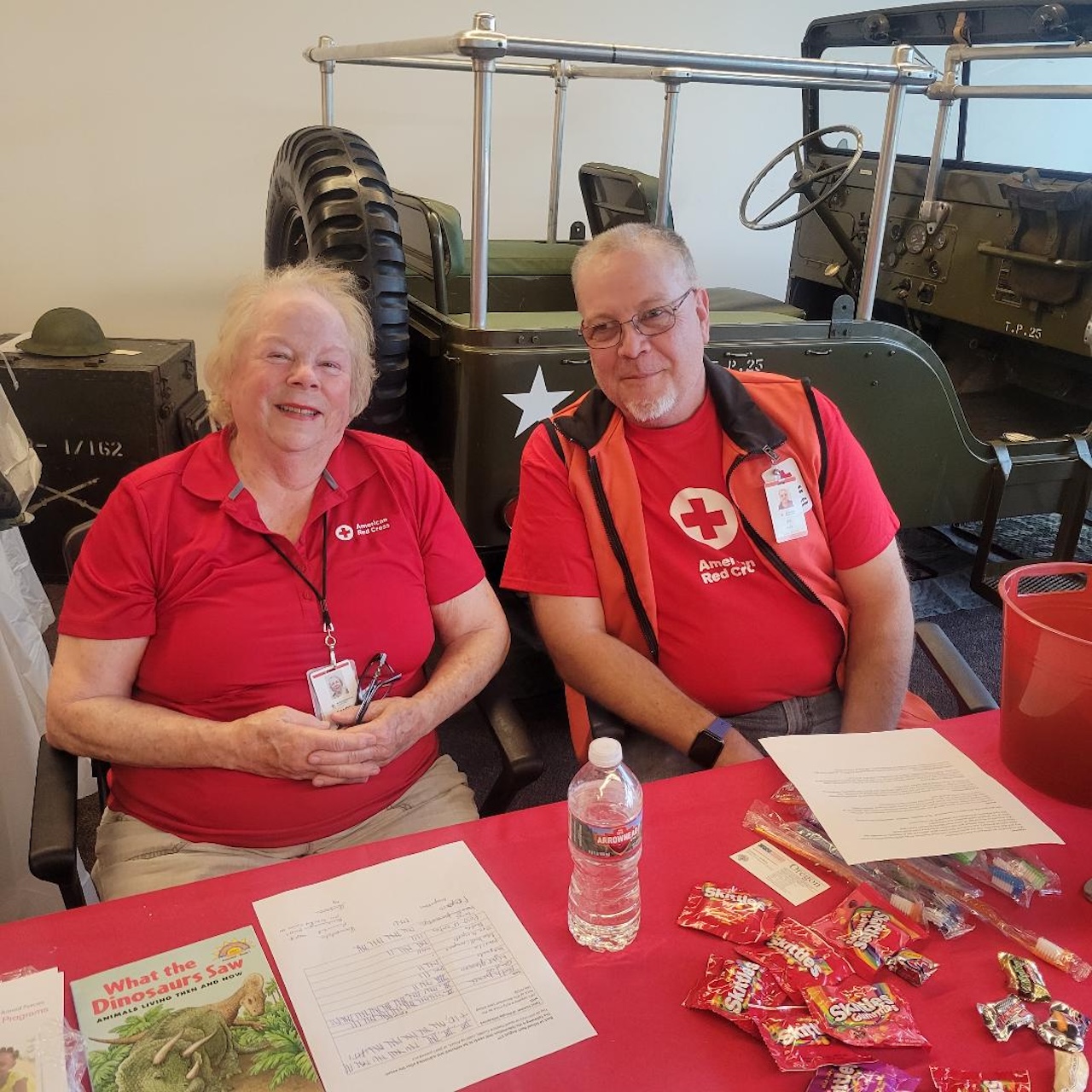She’s giving forward by supporting kids and families through mental health challenges and in crisis through the American Red Cross and other organizations.
Sandy is a retired school psychologist and currently a clinical psychologist. When SAGE started, she hosted a workshop on the impact of screen time on children and the importance of helping kids connect with nature. Today, after 30 years of working in schools, she continues to give forward in retirement by volunteering at community health fairs, giving presentations, and partnering with organizations to help people respond to mental health challenges and disasters.

“When SAGE started, I was very interested in the organization, because I had recently retired but have always worked with kids,” Sandy says. “SAGE asked me to do a presentation on how to ‘unplug’ kids and I was happy to do it. I did some presentations on that topic at several schools. I’m big on volunteerism in general.”
Sandy serves on the Public Education Committee of the Oregon Psychological Association, in which she participates in community health fairs, gives presentations, and partners with organizations like the YMCA to offer free workshops. Sandy has also been a volunteer with the Red Cross for about 26 years now as a disaster mental health responder. Red Cross responds to disasters of all kinds, including local events like home fires. When the Red Cross was first founded, it was to support the Armed Forces who were overseas. This resonates with Sandy because both she and her husband came from military families.

Sandy feels strongly about supporting the Armed Forces. About 15 years ago, the Department of Defense asked the Red Cross to develop materials for promoting resiliency and recovery in military personnel who were returning from deployments in war zones. Sandy became a Resiliency Workshop Facilitator and works with military personnel, veterans, and also their family members, including children. “When somebody in the family is deployed, the whole family is affected,” Sandy says.
The program has expanded to include caregivers of military personnel who have returned home wounded, both physically and psychologically. Sandy especially enjoys the learning modules for children of military families on such topics as confident coping and positive communication.
“They’re sort of psycho-educational,” Sandy explains. “Giving them information, but also teaching them skills and strategies for coping, little tools for their tool belt so that they can navigate whatever life deals them.”
Sandy grew up the oldest of three sisters, with a lot of responsibility as the oldest girl, especially later when her mother returned to the workforce. She did a lot of babysitting, was a Brownie and a Girl Scout, and worked with children in preschool through high school during her professional career. Though she always liked being around children, she knew that a traditional teaching job wasn’t right for her. Her trajectory changed when an opportunity opened up in graduate school. She had been attending a program for diagnostic and prescriptive teaching when her college opened a school psychology program.
“I thought, wow, that sounds perfect for me because I could work with kids and be on the same schedule as my kids but also get to do psychology,” she recalls.
After graduation, she moved to Oregon in 1979 to work in the Portland school district. Sandy recalls that over time, the problems that the children were dealing with outside of their school time became more serious.
“There were more important life things happening for them than whether they were good at spelling or math,” Sandy says. “I decided I needed to go back to school, so I applied to the clinical psychology program so that I could learn more about helping kids.”
Giving Forward
About 30 years ago, two of Sandy’s psychology colleagues became involved with the Red Cross. When they announced that the Red Cross was looking for volunteers to do mental health work, she signed up.
“Initially, I was thinking of responding to big disasters,” Sandy recalls. “We respond to those, but we also respond to home fires and smaller disaster situations here in our region. We are part of teams that meet with folks who have been affected by disasters. We’re not doing therapy. We’re doing more of what’s considered psychological first aid. We’re not going to develop lifelong therapy relationships with folks, but we are going to help them recover from the initial shock and sadness and everything that comes with having a disaster happen to you. Other members of the Red Cross are focused on meeting their basic needs, like shelter and feeding and clothing, and then we address the mental health needs.”
Sandy’s work at SAGE is an extension of this commitment to helping people, especially children, through tough times. She also appreciates that she’s met many great people through SAGE. She encourages other retired professionals to get involved.
“Many of us have had a very fortunate life where we’ve gotten to do many interesting things and we were probably paid well to do something we love,” says Sandy. “Even if we are retired now we still love doing the work. Now we not only have an opportunity to continue doing that work, but we are also able to model for younger generations coming along and mentor them. We can help them see that this is what our world needs to look like, people helping each other and taking care of one another. And for me, the best part is getting to do it with other people that I really respect and admire.”
For those inspired by Sandy’s story and looking to make a difference in their own communities, SAGE offers numerous opportunities to get involved as a volunteer.
If you would like to learn more, contact SAGE.
